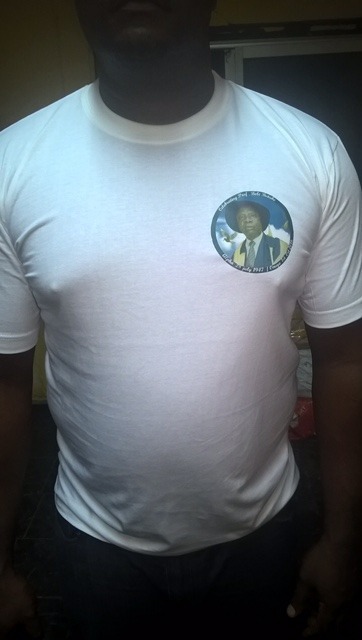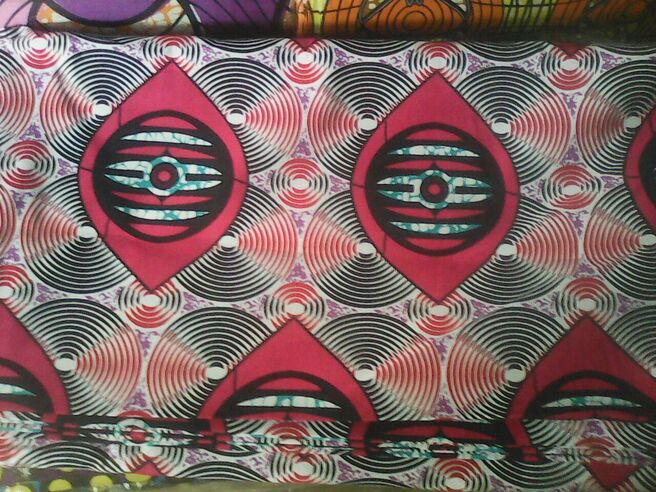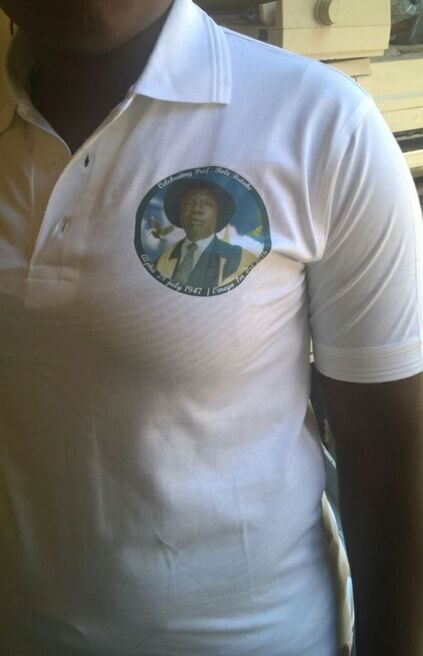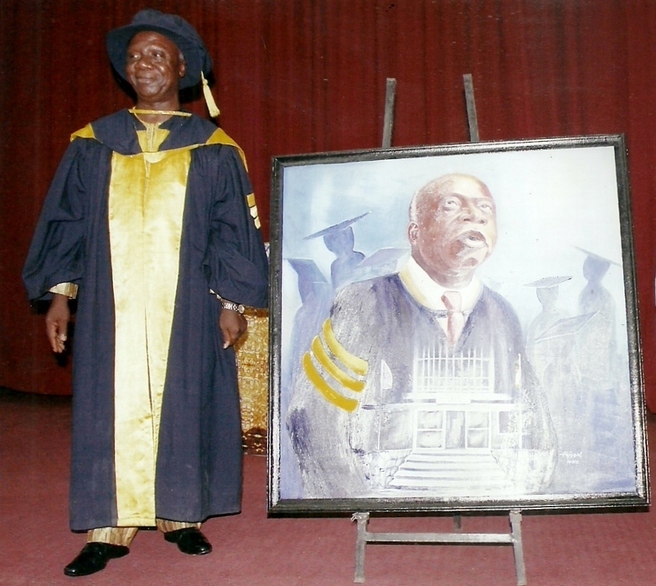Bole Butake was born in Nkor, Noni in 1947, to Joachim Butake, a catechist and Beatrice Layir. The young Bole was exposed to the harsh realities of life, when both his father and mother took leave of their earthly sojourn within the space of one week. Orphaned at the tender age of four, Bole Butake would have been left at the mercy of the elements, if not for the timely and far-reaching intervention of his mother’s elder brother, Pa Gallius Jokwi. His uncle stepped in where his parents stopped and groomed Bole Butake into the man the world came to know and celebrate.
He attended the local primary school, Sacred Heart College, Mankon, CCAST Bambili, the University of Yaoundé I and the University of Leeds, England.
Troubled by the scarcity of literature by Anglophone Cameroonians, Bole Butake founded The Mould in 1976, a magazine of creative writing for English-speaking Cameroonians, which set out to groom budding writers and concurrently provide a space for the exhibition of their works.The Mould published several poems and short stories before it ceased publication in 1981.
In the Christmas season of 1978, he met Bolle Jane Kongke in Bamenda. The two young literary minds struck up a friendship which slowly but surely blossomed into a matrimonial union in 1980 in Kumba. Together, they raised Vicky, Bolang, Chinfon, Nyanyo and the twins, Efile and Kichey.
In 1984, Bole Butake published his first play, The Rape of Michelle, followed by Lake God (1986), The Survivors (1989) and And Palm Wine Will Flow (1990), one of his most acclaimed plays, among several others.As co-founder of the Yaoundé University Theatre, he produced stage performances of his plays and those of other playwrights. In the mid-eighties, Bole Butake rallied a number of Cameroonian artistic directors, playwrights, actors and actresses, eventually forming the Flame Players, a semi-professional group that performed plays both in and out of Cameroon.
Bole Butake was a Professor of Performing Arts and African Literature. Throughout his career, he combined his artistry with the academia, equally holding administrative positions in the course of service, namely; the Dean of the Higher Institute of Arts, Social and Management Sciences at the Cameroon Christian University, Bali, Vice-Dean in Charge of Academic Affairs and Head of the Department of Arts and Archaeology at the University of Yaoundé I. In the course of his over forty-year-long career, Bole Butake groomed hundreds of students including his daughter, Butake Nyanyo Layih, who defended her PhD in June, barely three months before he passed on. Bole Butake had supervised about twenty-five PhD researchers at the time of his retirement in 2012 and continued to groom many more until the time of his death.
He travelled widely in the course of his career and collaborated with different universities and organizations on a good number of projects. In 1999 Prof Butake along with some of his PhD students, accompanied the late Prof Eckhard Breitinger on a DAAD sponsored Summer School project at the University of Bayreuth, Germany, South Africa, and later Cameroon. This was the beginning of a new and profitable professional relationship with the University of Bayreuth – a relationship which was beneficial both to him and his students. His academic exploits and his fervent wish to create research opportunities for his PhD students later brought him to work on the Volkswagen Foundation project.
Sponsored by the Volkswagen Foundation, Professor Bole Butake worked on the Passages of Culture project in collaboration with Professors Till Forster of the University of Basel, Switzerland, Abdalla Uba of the Bayero University, Kano, Nigeria, Judith Schlehe of the University of Frieburg, Germany and Liz Gunner of the Wits Institute for Economic and Social Research, Johannesburg.
He worked on the HELVETAS project, traveling to several villages in the North West region, working with children and adults on land use/management as a Theatre/Film-for-Development facilitator. Butake’s Theatre and Film for Development projects as well as his quest for the empowerment of the woman took him to practically all the regions of Cameroon and resulted in short films and tele-dramas such as Hard Road to School, Ngrung Palaver (women and access to landed property), The Educated Girl Child, l’Exciseuse de Pouss, Gomenna We, Wanted and Another Child, among others. Most of his tele-dramas were aired on Women and Development, a programme presented by the late Anne Nsang.
In the course of his career, he received a number of awards: in January 2016, he was awarded a medal by the Ministry of Culture in Cameroon, to honour his achievements in the literary milieu; in 2012 he won the EKO prize for literature, which recognized “the lifetime achievement of Bole Butake as a writer whose work, taken as a whole, has had a significant impact on literature in Cameroon and beyond”; in the November 2001 issue, Express International listed him as one of the most influential Cameroonians; in 1993, Shoes and Four Men in Arms won the second prize at the Goethe Institut drama competition in Cameroon, among a host of others.
A distinguished son of the soil, Bole Butake was fervently dedicated to the development of his local community. He was the pioneer president of the Nkor Development Authority (NDA) and worked relentlessly with his team to provide portable water to his community, among other endeavours.
Bole Butake’s works were hinged on the ordeals of the oppressed, setting out to interrogate the attitudes and shortcomings of the powers that be, while simultaneously challenging the proletariat to take steps to address their predicament. In his own words: “In the Cameroonian situation, for example, things have been further compounded by the manipulation of ethnic and linguistic divergences for the maintenance of a stranglehold on the entire country by a handful of absolutely myopic and ruthless self-seekers…in a country with a population of barely twelve million people constituting over two hundred and fifty ethnic groupings, in addition to two foreign cultural heritages-English and French-imposed by colonialism, the exploitation of ethnic and linguistico-cultural rivalry for selfish, political ends can be very effective only at the cost of the nation[1]”.
Bole Butake was an artist to the core, an erudite academician and a lover of hard work. He had nothing but scorn and contempt for lazy, entitled people, but would relentlessly extend a helping hand to hardworking people in need, as he did throughout his life.
As a father, he had zero tolerance for anyone who slept too much or watched too much TV! He filled his study with books on all subject matter to give his kids the opportunity to enrich their minds. He loved to relax with family, sitting with his wife in the living room, chatting about news headlines, or sitting on the porch and admiring the greenery of his compound while munching on a cob of corn.
Bole Butake was devastated by the passing onto glory of his uncle, Pa Gallius Jokwi in 2014. The loss of this father figure dealt him a blow, leaving him orphaned a second time. He paid his last respects to Pa Gallius in a befitting fashion, but the demise of his uncle clearly left him scarred.
After some health complications, Professor Bole Butake passed on to glory on Saturday, October 1st 2016, at the University Teaching Hospital in Yaoundé. His passing on is a big loss not only to his family, but also to those who knew him and constantly tapped from his fatherliness, gentle spirit and sympathetic nature.
[1]“The Dramatist at Work: My Theatre Work is aimed at the Urbano-Politico-Bureaucratic Elite in Cameroon”, in EckhardBreitinger (ed), Theatre and Performance in Africa, Bayreuth: Bayreuth African Studies, 2003: 101-104.





